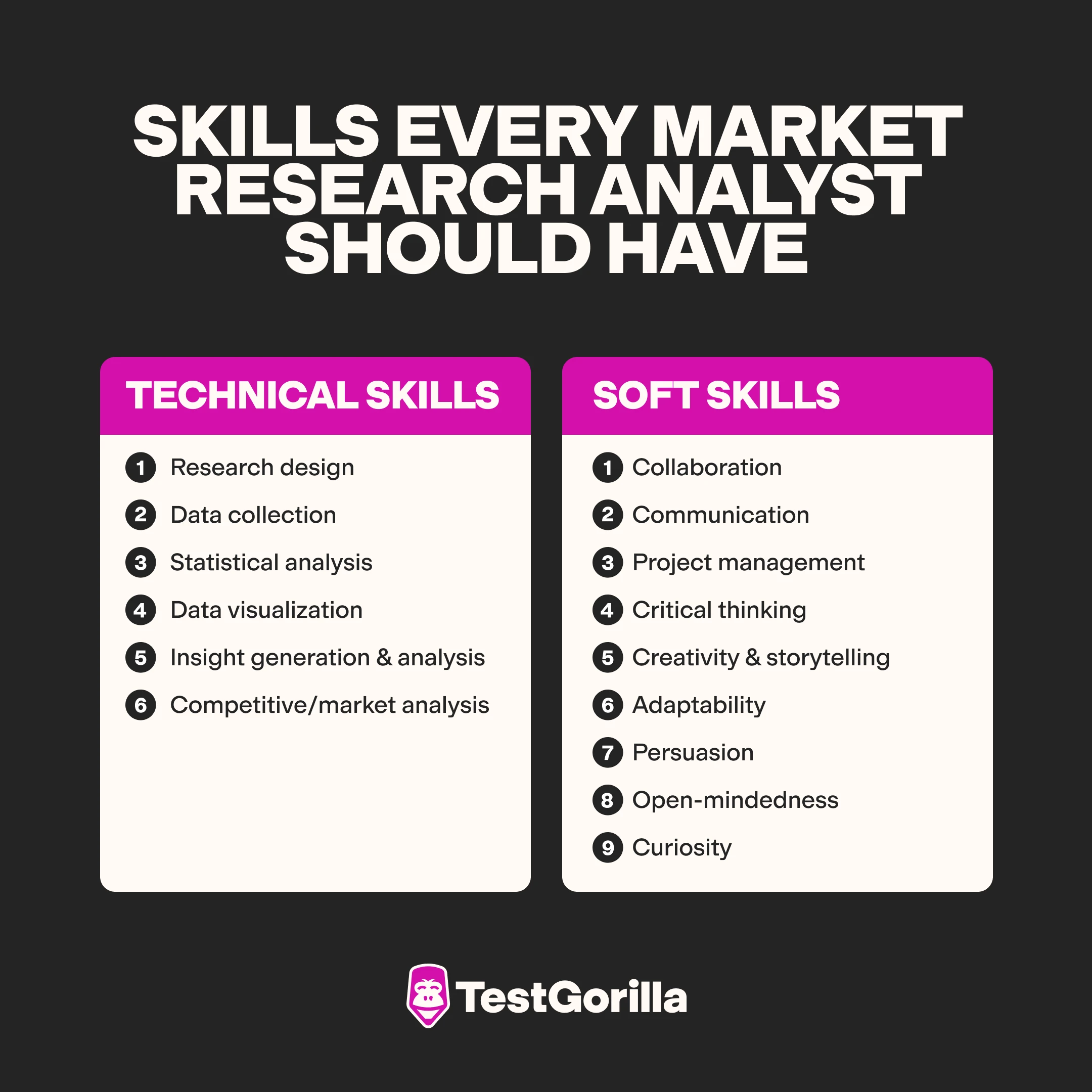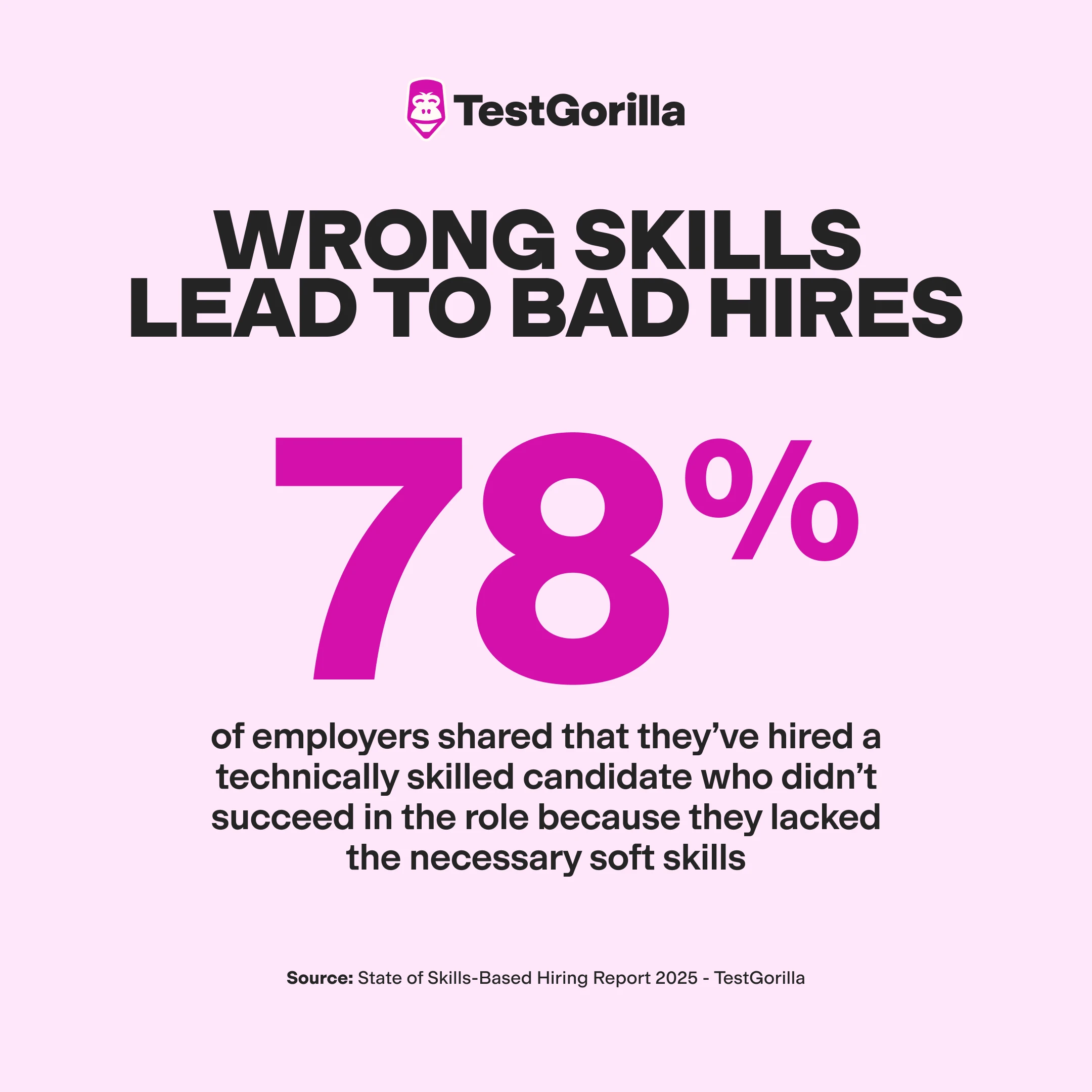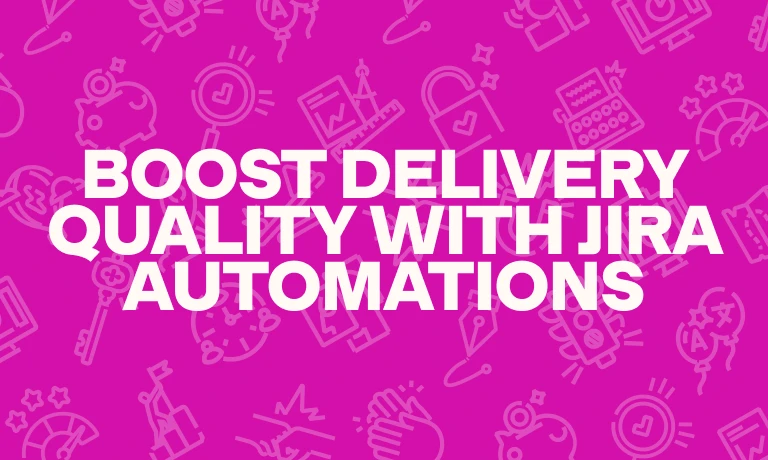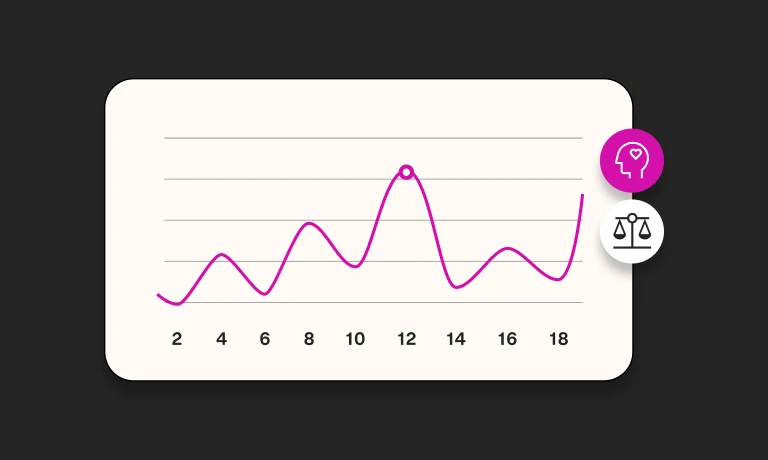If you’re assessing market research analyst candidates, beware: Focusing only on technical skills is a mistake
Olivier Wagner, Founder and CEO at 1040 Abroad, has hired and managed several analysts. When we asked him about assessing market research analyst candidates, he told us, “Technical competence is extremely important but I have learned it is only part of the equation!"
The other experts we spoke with agreed. They’re overall impression? Soft skills matter a lot when it comes to hiring market research analysts.
So what actually works to assess both soft and technical skills?
Below, we give you the lowdown on the various ways you can effectively assess these skills, including using our Market Research test.
The skills that really matter for a market research analyst
When you need to hire a top market research analyst, you can’t just settle for research expertise or data analytics experience. You need the right blend of market research skills and capabilities.
Olivier Wagner, Founder and CEO at 1040 Abroad, said it best. After hiring several analysts, he shared that “the correct balance of technical skill combined with the skill of telling a story can transform dry numerical data into decisions which clearly help move businesses forward.” That means you’ve got to find a way to assess both hard and soft skills.
Check technical fundamentals
A market research analyst absolutely needs a slew of technical and analytical skills, including:
Research design: The ability to define objectives, create surveys that capture the right information, determine the best methodology, and avoid biases
Data collection: The knowledge of both quantitative (surveys, for example) and qualitative (interviews or focus groups) methods
Statistical analysis: Experience with regression, correlation, significance testing, segmentation, and forecasting
Data visualization: An understanding of how to translate findings into clear dashboards or visuals for diverse, often non-technical, audiences
Insight generation and analysis: The ability to collect data, tie it to the business strategy, and answer the relevant questions
Competitive/market analysis: Experience evaluating competitors, trends, pricing, and positioning
A strong candidate should know several tools and software solutions, including advanced Excel, SPSS, languages like R or Python, Tableau, Power BI, Google Analytics, and survey tools like Qualtrics or SurveyMonkey.
The tools aren’t all that matters, though. Šarūnas Bružas, CEO at Desktronic, shared that “although being conversant with instruments such as R, Python or SPSS is important...what is significant is the ability to draw viable ideas using data and express them in a manner that is easily understandable.”
This leads us to our next point…
Don’t forget about soft and cognitive skills
According to Bružas, recruiters often don’t think about “ensuring that the applicants can collaborate with individuals not connected with the field of research.”
He continues, ”A great researcher does not solely operate in isolation but he/she operates in groups within various departments and transform [complicated] information into a language that suits a particular department. This skill to communicate and collaborate among teams will make even the most [technically] qualified candidates have little impact.”
In addition to needing to be strong collaborators, market research analysts need to be strong storytellers and communicators so they can take complex data and distill it into actionable insights and recommendations. They’ll have to analyze survey data, for example, then figure out exactly what it means and what the next step should be.
Project management is another crucial capability, as market research analysts may need to manage several studies at once and turn things around on tight timelines.
They’ve also got to have excellent critical thinking skills. Again, the role is about more than simply managing data: they’ve got to identify and analyze patterns, gaps, or anomalies.
And it’s helpful to have a strong understanding of business, since they’ll use that knowledge to understand how their findings might influence customer retention or product positioning.
Experts in the market and social research space agree about the importance of soft skills for the industry today. Contributors to Research Live’s Preview of 2025 note that the most in-demand skills in 2025 are soft skills: healthy skepticism of data, creativity, adaptability, persuasion, open-mindedness, and curiosity, to name a few.
All these soft skills are crucial for the success of a market analyst. Bethan Blakeley, Insights & Analytics Expert, says this to analysts on Research Live:
“If we can’t communicate the value of our insights to our stakeholders, they are pointless. If we can’t convince our peers that they should base a business decision on the analysis we’ve done, there is no point us doing it. If we can’t turn our data problem-solving skills into business problem-solving skills, and work with business leaders to find the common ground, we may as well pack our bags now.”
From a hiring standpoint, Olivier Wagner shared a similar insight: “One of the most impressive candidates that I have had to date suffered through a minor technical error but brought great trust by the way of her articulating insights in a clear and powerful fashion. That balance won her promotion and was of great utility in practice.”
→ Tip: Be sure to include both sets of skills in your market research analyst job description.
Unfortunately, finding candidates with the right skills isn’t easy
When we surveyed employers for our 2025 State of Skills-Based Hiring Report, 63% of employers said it’s been harder to find great talent this year than last year. One reason? According to more than 50% of employers, determining whether candidates have the right skills is difficult.
When hires don’t have the right skills, it can lead to problems. While most employers we talked to were generally happy with recent hires, of those who were dissatisfied, nearly half (45%) said it was because the new hires lacked the right skills.
And 78% of employers shared that they’ve hired a technically skilled candidate who didn’t succeed in the role because they lacked the necessary soft skills.
Employers need a good way to assess market research analyst skills (technical and soft), as traditional methods – like resumes – don’t work. For example, a candidate can say they’re strong storytellers with strong research design skills, but how can you tell if they really are?
The best insights on HR and recruitment, delivered to your inbox.
Biweekly updates. No spam. Unsubscribe any time.
The best way to assess both types of market research analyst skills
Here’s our fool-proof method for assessing market research analyst skills.
Start with expert skills assessments
Skills assessments are great for assessing technical and soft skills because they objectively measure how candidates apply their skills in real scenarios.
In fact, our 2025 report showed that 71% of employers using skills assessments feel they’re more predictive of job success than resumes. Forty-three percent believe assessments help them verify soft skills, while 57% believe they’re useful for verifying cognitive abilities.
Even better, 84% are happy with the employees they’ve hired using skills tests.
With TestGorilla’s expert-designed and scientifically validated tests, you can assess candidates for crucial skills.
A great test for assessing technical skills is our Market Research test, which assesses candidates’ ability to plan and conduct research, understand various methodologies, and make sense of data.
And since assessing a combination of skills is important, you can combine this test with up to four other ones to create a unique assessment.
Here are some tests to consider using:
Some oh-so-important soft and cognitive skill tests, like our Critical Thinking test, Communication test, and Project Management test
Other market-specific tests, like our Market Analysis test
Data-focused tests, like our Working With Data test, Data-Driven Decision-Making test, and Data Wrangling test
Software skills tests like the Tableau test
We recommend implementing talent assessments early in the process, before extensive interviews. This way, you get an early glimpse into each candidate’s skill set so you can make a quick decision and avoid time spent on candidates who aren’t a fit.
Intentionally structure your interviews
Interviews can be great, but you’ve got to do them right. Don’t just throw out vague, hypothetical questions to candidates and hope you get what you need. Instead, carefully craft behavioral questions that let you understand exactly how a candidate approaches their work.
Then create a rubric you can use to assess every candidate the same way. Consider a scorecard with a 1-5 scale and make sure everyone on the interview pane is aware of the criteria. (Or, use AI video interviews so the AI can score interviews for you and you can review final scores.)
Katie Jones, Owner at Squirrel A Store of Buried Treasure, suggests asking interview candidates to “discuss a previous project or analysis in an interesting, summarized manner,” noting that this line of questioning is “more about trying their capability to summarize data without losing detail that is crucial to making decisions.”
Additional market research analyst interview questions you might consider include:
Can you tell me about a research project where your insights changed a business decision?
How do you stay current on emerging research methods, tools, or consumer trends, including AI?
Tell me about a time when your findings challenged a stakeholder’s assumptions or strategy. How did you handle that feedback and what was the outcome?
Conduct practical, real-life work tasks
A hands-on, practical task gives you evidence of how candidates actually use skills on the job.
Ask candidates to complete a short, paid task or project so you can see how they’d approach a real world problem. We recommend inserting this toward the end of the hiring process, so you’re only asking a few of the strongest shortlisted candidates to complete the task and not wasting anyone’s time.
Provide a sample dataset and business context, then ask candidates to summarize their findings, insights, and recommendations. You’ll be able to evaluate the accuracy and relevance of their work, plus how clearly they presented their findings and how well they approached the problem.
Take it from Wagner, who, through his hiring experience, determined “the best course is to use real data and ask candidates to translate numbers into important recommendations for decision-makers.”
He says it’s been useful to present candidates with “anonymized client scenarios relating to tax data and [ask] how they would advise a client on compliance or planning. The best candidates do not merely point out patterns – they articulate them with a view to the ‘so what.’ Can they take a chart and turn it into a solution an executive can act upon with confidence? That is the essence of the role.”
Jones agrees, saying, “The best method ... to evaluate the ability of an individual to transform data into action is by providing them with a real life situation. Give them a set of data that is similar to the kind of problems they would have to face in the job, and ask them to come up with information and prescribe courses of action. This would demonstrate their technical expertise and also how they would convey complicated information so that it can be easily understood by non-experts. It is all about the way they piece the puzzle together.”
Hire your next market research analyst with skills testing
By starting with skills tests, you can identify market research analysts with the right balance of skills. As Olivier Wagner puts it, “These practical tests soon separate those who can do the work from those who can make a real impact.”
A platform like TestGorilla can help you assess skills objectively and quickly with its Market Research test, AI video interviews, and other offerings.
To learn more, sign up for a free TestGorilla account or book a free demo today.
Contributors
Olivier Wagner, 1040 Abroad, Founder and CEO
Šarūnas Bružas, Desktronic, CEO
Katie Jones, Squirrel A Store of Buried Treasure, Owner
Related posts
You've scrolled this far
Why not try TestGorilla for free, and see what happens when you put skills first.




















